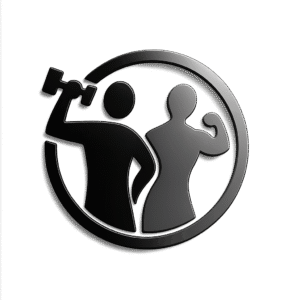Frequently Asked Questions
GENERAL HEALTH & FITNESS FAQs
How can I start my health and fitness journey if I've never done it before?
Start small: begin with a balanced diet, 20–30 minutes of daily activity, and regular hydration. Consistency matters more than intensity.
Do I need to go to the gym to lose weight or get fit?
Not at all. Walking, home workouts, yoga, and active daily habits can be very effective when paired with the right nutrition plan.
What's more important: diet or exercise?
Both matter, but for weight loss and hormonal balance, diet plays a bigger role—up to 70% of your results.
Can I eat my favorite foods and still be healthy?
Yes! We believe in balanced living. You can enjoy your favorites in moderation with proper portion control and timing.
How much water should I drink daily?
Aim for at least 2–3 liters a day, depending on your body, weather, and activity level.
PCOD / PCOS FAQs
What is PCOD or PCOS?
Polycystic Ovary Syndrome (PCOS) is a hormonal disorder where ovaries produce excess male hormones leading to irregular periods, weight gain, skin issues, and fertility challenges.
Can PCOD be cured?
There's no "cure," but with the right lifestyle, diet, and exercise, symptoms can be reversed or managed effectively.
I have irregular periods. Is it because of PCOD?
Possibly. Irregular periods are a common symptom of PCOD, but it's best to confirm with a medical diagnosis and hormonal tests.
Can I lose weight with PCOD?
Yes, but it requires a targeted approach focused on reducing inflammation, balancing hormones, and improving insulin sensitivity. Crash diets don't work- instead, sustainable lifestyle changes are key.
Will I face fertility issues if I have PCOD?
Not always. Many women with PCOD conceive naturally. A healthy lifestyle can significantly improve fertility outcomes.
THYROID FAQs
What are the symptoms of thyroid imbalance?
Fatigue, sudden weight gain/loss, hair fall, dry skin, mood swings, and irregular periods are common signs.
Can thyroid problems be reversed?
Some cases, like Hashimoto's or hypothyroidism, are lifelong, but proper care can stabilize hormone levels and improve symptoms.
Do I need to avoid certain foods if I have thyroid issues?
Yes—raw cruciferous veggies (like cabbage), soy, and gluten (in some cases) can interfere with thyroid function.
Will I always need to take thyroid medication?
Many people do, but some can reduce their dosage over time with doctor guidance and lifestyle changes.
Can I lose weight with hypothyroidism?
Absolutely. It might be slower, but with thyroid-friendly foods, sleep, and stress control, weight loss is possible.
DIABETES FAQs
What is the difference between Type 1 and Type 2 diabetes?
Type 1 is autoimmune (usually early age). Type 2 is more common and related to lifestyle, diet, and insulin resistance.
Can Type 2 diabetes be reversed?
In many cases, yes! With proper diet, weight loss, and insulin sensitivity improvement, blood sugar can normalize.
Should I completely avoid sugar and carbs?
Not completely—but focus on low-glycemic index (GI), complex carbs and avoid refined sugar. It's about smart choices, not total deprivation.
How often should I check my blood sugar?
Depends on your condition. Most Type 2 diabetics check once a day or a few times a week. Consult your doctor or coach.
Can I eat fruits if I'm diabetic?
Yes, but choose low-sugar fruits like berries, guava, apple, papaya — and eat them in moderation.
HORMONAL IMBALANCE FAQs
What causes hormonal imbalance in women?
Stress, poor diet, lack of sleep, thyroid issues, PCOD, and sedentary lifestyle can all disrupt hormone balance.
What are common signs of hormonal imbalance?
Acne, mood swings, fatigue, weight gain, irregular periods, hair thinning, and low libido are typical signs.
Can lifestyle really balance hormones naturally?
Absolutely. Food, sleep, movement, and stress control are the pillars of hormone balance—and they work.
Should I get my hormones tested?
Yes, if you experience symptoms. Tests help us customize your health plan better.
How long does it take to see results?
Usually 6–12 weeks of consistent effort shows significant improvements in symptoms and energy levels.
SERVICE & COMPANY FAQs
What makes TruBalanx different from others?
We focus on root-cause healing through South Indian-friendly, sustainable diet plans, ongoing coaching, and transformation - not just weight loss.
Are your services online or offline?
Both! We offer teleconsultations, WhatsApp follow-ups, in-person appointments, and regular health tracking.
Do I need a doctor's prescription to join?
Not required—but if you're under treatment, we'll happily work alongside your doctor for the best results.
How soon can I see results?
Many clients feel better within 2–4 weeks, and see visible progress in 6–8 weeks, depending on consistency.
How do I join TruBalanx programs?
You can book a consultation via our website, call us directly, or message us on WhatsApp.
Do you offer vegetarian, vegan, and non-vegetarian meal plans?
Yes! We offer flexible meal plans for vegetarian, vegan, and non-vegetarian preferences, and those are customized to fit your lifestyle.
